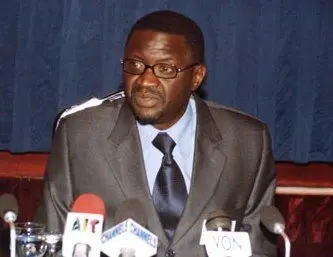Africa-wide task forces set up to accelerate delivery of rice technologies
National and international rice experts in Africa have joined forces to set up continent-wide task forces on critical thematic areas in the rice sector to stimulate the delivery of improved technologies. Focusing on five themes – (1) breeding; (2) agronomy; (3) postharvest and value addition; (4) policy; and (5) gender – the Africa rice task forces aim to provide synergy to research efforts across the continent, pool scarce human resources and foster a high level of national involvement.
“This approach will reduce the time lag between the development and the release of new rice technologies across the continent and increase their impact,” said Dr. Papa Abdoulaye Seck, Director General of the Africa Rice Center (AfricaRice). Dr. Seck explained that the task force mechanism is based on three principles: sustainability, development of critical mass and ownership by the national agricultural research systems. “A major thrust of the task forces is building the rice research capacity at the regional and national levels.”
AfricaRice is facilitating these continental task forces in response to the strong demand made by the participants of the 2nd Africa Rice Congress held in 2010, which was endorsed by the 28th Ordinary Session of its Council of Ministers in 2011. For AfricaRice and its partners, the task force mechanism is an important tool to link the development of improved rice technologies with local partners through adaptive research and to accelerate their dissemination through innovation partnerships. The centre will build on its experience with the regional rice task force mechanism introduced in the nineties, which was appreciated by its national partners.
The new task forces will operate under the umbrella of the Global Rice Science Partnership (GRiSP), a CGIAR Research Program, which provides a single strategic plan and unique new partnership platform for impact-oriented rice research for development (R4D).
“We must ensure that the task forces provide a vital space for young scientists to grow,” said Dr. Marco Wopereis, AfricaRice Deputy Director General, at the recent launch of the Africa Rice Agronomy and Postharvest & Value Addition Task Forces in Cotonou, Benin, which was attended by participants from 14 African countries. Issues relating to mechanisation are dealt within both these task forces.
Earlier this year, the Africa Rice Gender Task Force was launched to ensure an effective gender mainstreaming in rice R4D and capacity building activities in order to deliver gender-friendly technologies that can improve the quality and the competitiveness of locally produced rice. The Africa Rice Breeding Task Force is already in operation and is facilitating access of rice breeders across the continent to new varieties and lines. It has also been actively engaged in organizing training programs on breeding, experimental design, and germplasm database management for national researchers.
https://africarice.org/warda/newsrel-grisp-taskforce-dec11.asp





